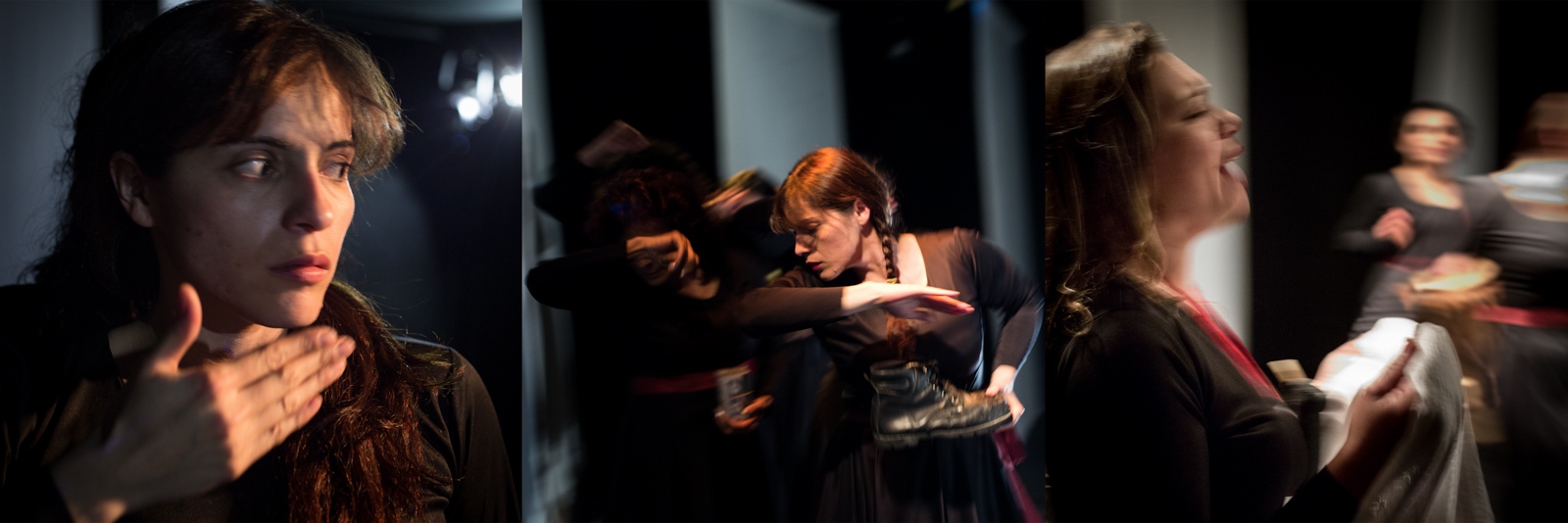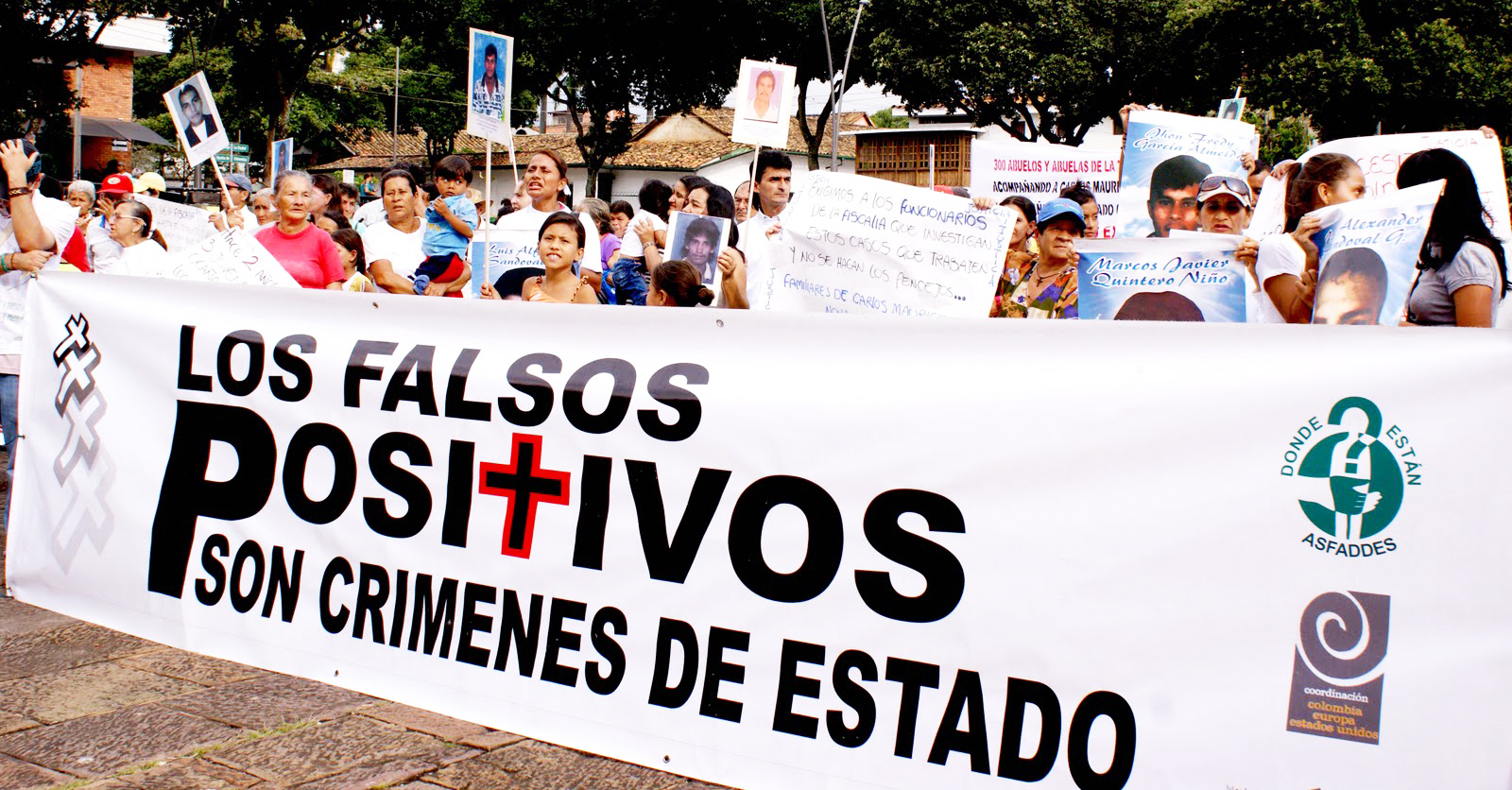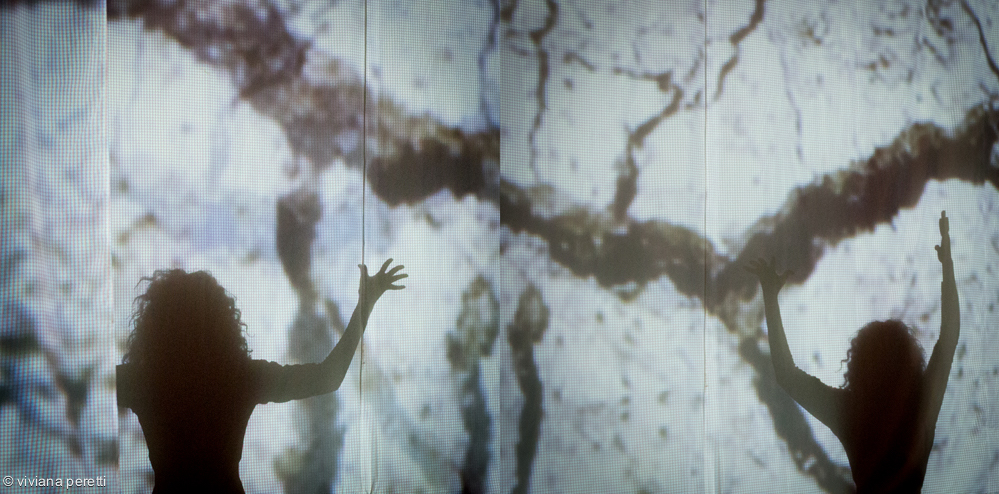Justice, Peace and the Future in Colombia and Canada
September 8, 2016
I’m so excited to be working with Aluna Theatre and my fellow CANACOS on this year’s RUTAS panamericanas festival.
All year round, Aluna holds a bold and beautiful space for theatre artists – particularly women – to traverse personal and state boundaries, question imposed structures, reimagine what our worlds are and can be. At RUTAS, artists from around the world build on that conversation with their presentations and, judging from my experience at the last RUTAS festival, it’s a totally electric space to be in.
This year, I’m looking forward, in particular, to meet the artists from Colombia’s Tramaluna Teatro. Their piece, Antígonas, tribunal de mujeres, is a collective creation by nine women. Six of the women are real victims of criminal state violence, having been directly affected by some of the worst genocides in Colombia’s recent history. The remaining three women are professional actors who support the collective through their various artistic crafts, which include film, dance, and music. Together they present a potent mix of performance and real testimonial, inspired by their experiences, using the greek tragedy of Antigone as a vessel.
In the 1980s, FARC and the Colombian Communist Party created a political party called La Unión Patriótica, or the Patriotic Union (UP), as part of the peace negotiations with the Conservative administration of that time. Their ideology was openly Marxist-Leninist, and their new party would offer an alternative to the two main political parties – Conservative and Liberal – that continue to see-saw in power in Colombia to this day.
However, as they grew in popularity through the mid-1980s, UP members were decimated in huge numbers by right-wing death squads, sponsored by drug traffickers and with links to government security forces. Creator/performers Orceni Montañez and Fanny Palacios Muñoz Romero are survivors of this political genocide, and present their testimonials in Antígonas, tribunal de mujeres.
From 2002 to 2008 (and some testify that it continued years later), soldiers from the Colombian military were promised bonuses and longer vacation time for every dead body of a FARC soldier that they could return to the authorities. To satisfy their bosses, soldiers began gathering vulnerable teenagers and young men, often from poor areas and living with disabilities, with the promise of a well-paying job. Once assembled, the young men would quickly be murdered and used as props for the soldiers’ gain. Soldiers would dress them in the fresh uniforms of FARC guerrilla, put guns put in their hands, and stage the aftermath of a battle scene.
Once sufficient ‘evidence’ of the incident was collected, the victims would be buried in mass graves, often far from their homes. Their families would have no clue of what happened to them and believed they had gone missing. If their bodies were eventually discovered, they were denounced as guerrilla fighters. This came to be known as the Falsos/Positivos, or False/Positives. The Human Rights Watch calls it one of the worst episodes of mass atrocity in the Western Hemisphere in recent decades. Luz Marina Bernal Parra, Maria Ubilerma Sanabria Lopez and Jessica Carmona, three of Antígonas’ creator/performers, lost their sons to these extrajudicial killings.
More recently Mayra Lopez Severiche, fellow creator/performer, was arrested as a political student leader at her school, La Universidad de Sucre. She was held in jail for a year as a result and shares her experiences through performance and music in Antígonas.
These women continue to resist to this day, seeking justice for themselves and their missing and murdered loved ones. Presenting this piece is a part of that justice process.
Those who are familiar with the story of Antigone will know that her sadness is paired with a powerful hope. The team behind Antígonas shares the same hope. With their work, these women are taking strong, meaningful steps in a long journey towards truth and reconciliation, and demanding that we all bear witness to these atrocities.
The words ‘truth’ and ‘reconciliation’ have been on the lips of many Canadians this year. With the Truth and Reconciliation Commission’s report on the legacy of Canada’s residential school system released last December, we cannot turn a blind eye to the issues of criminal violence exerted by the state that are so common in our own country’s past and present. I believe this show will be an eye-opening experience for those attending the piece at RUTAS panamericanas this year.
As a young, emerging theatre artist, I love to create future worlds in my work. Worlds where my political and social issues are things of the past, proposing active solutions, where the past is reconciled and we’re no longer rooted to pain.
The more I work with this concept, the more I realize that diving deep into my real life experiences with these issues is key to crafting a well-rounded solution. It’s not productive to dream without understanding the elements at play. The roots of pain and trauma can wrap together tightly and spread farther than you ever expected. So what are ways we can rage and yet do it beautifully?
It’s for this, among many other reasons, that I’m looking forward to participating in the playwriting masterclass with theatre maker Carlos Satizábal. His resume is impressive: he’s one of the co-founders of Tramaluna Teatro and Raspoda Teatro. He’s a poet, actor, director, and composer who works directly with displaced communities and survivors of violence in Colombia, using theatre as a tool for healing and education. Through Tramaluna Teatro, he and his partner Patrizia Ariza collected the ingredients for Antígonas and he worked as a dramatist, director and designer for the piece.
The masterclass is designed to teach the famous collective creation method of La Calendaria in terms of dramaturgy and the written word – the Spanish written word, to be precise. Although Spanish is technically my first language, I was born and raised in Canada. It’s only recently that I’ve discovered English doesn’t need to be the only language I work in. I’m so curious about what kind of voice will emerge from my Spanish expression. I’m also excited to see how Carlos deals with social justice and personal emotions through writing. His experience in sound design and composing gives me some faith that even if our languages fail us we can continue to work through music and sound.
Women are always at the forefront of radical change. Without us, there is no peace, no truth, and no reconciliation. I can’t wait to meet the women of Antígonas, tribunal de mujeres, the incredible roster of RUTAS panamericana’s artists and their accomplices, and to hold space for their stories on this land. It’s a unique opportunity to meet, share ideas, and witness each other’s work across international borders.
I hope to see you there.
 Photo credit: Viviana Peretti.
Photo credit: Viviana Peretti.
Text by: Camila Díaz Varela
Antígonas, Tribunal de mujeres – Nine women – victims of state violence in Colombia – create a catharsis on stage while denouncing crimes against humanity. The troupe is composed of mothers, victims of judicial mishandlings for defending human rights, lawyers, actors and artists. This play stands out for its contribution to the peace process in Colombia. One of its members, Luz Marina Bernal, leader of the Mothers of Soacha has been nominated for a 2016 Nobel Peace Prize.
Camila Diaz-Varela is a member of CANACOS, a group of Latin Canadian professional theatre artists supported by Aluna, who will act as artistic ambassadors throughout RUTAS panamericanas 2016. Tickets for Antígonas, tribunal de mujeres and all festival presentations are now available at www.RUTAS .ca.


